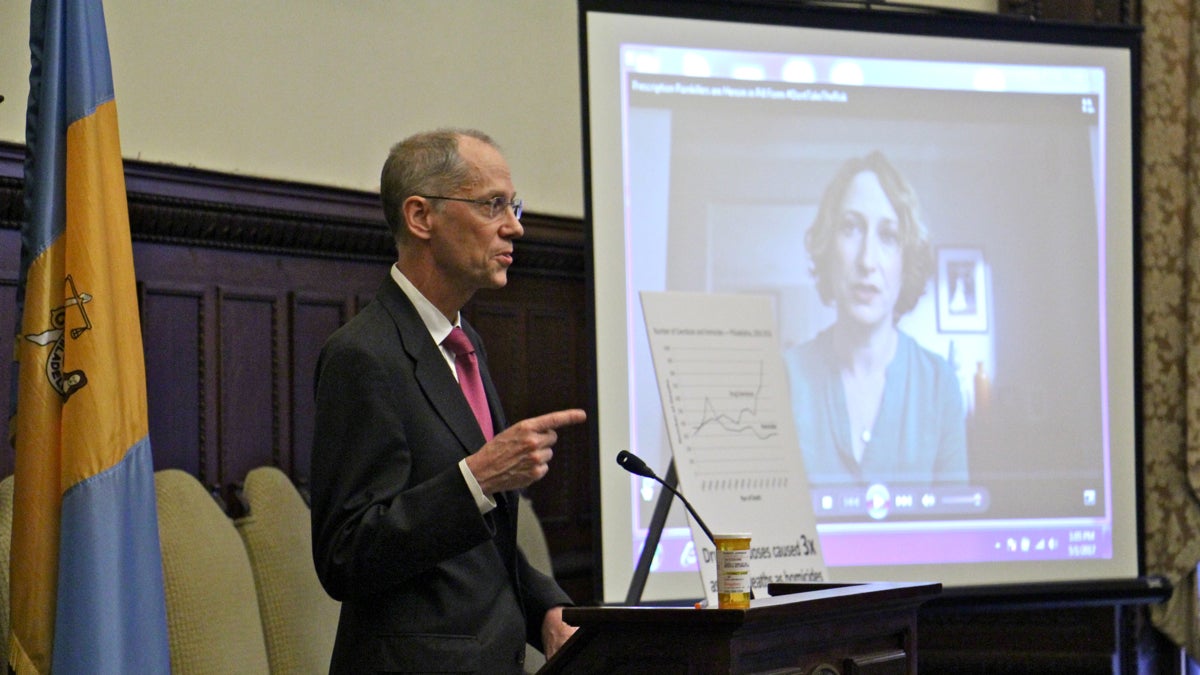Philly takes new approach to opioid crisis with ads targeting painkillers

Philadelphia Health Commissioner Thomas Farley introduces a new ad campaign aimed at stopping opioid addiction before it starts. (Emma Lee/WHYY)
Philadelphia has launched an ad campaign aimed at preventing the spread of opioid addiction.
More than 900 people died from drug overdoses in the city last year, and most of those fatalities were due to opioids.
The new campaign is trying to persuade Philadelphians to not use prescription opioids in the first place. City officials said their strategy was simple — to let real people tell their own stories and how they have been affected by the drugs.
Toward the end of the ad, which features a montage of different speakers, a man says, “It all started with the prescription opioids.”
A woman echoes that sentiment.
“I couldn’t wrap my mind around how he got from painkillers to heroin,” she says, then takes it one step further. “Then I realized, they were the same thing.”
City Health Commissioner Dr. Thomas Farley spearheaded development of the new approach to an ongoing epidemic.
The goal, he said, was to do something different than what government officials did in the 1980s when confronted with widespread use of crack cocaine. Back then, people who used were criminalized.
“It didn’t work,” Farley said. “That epidemic devastated communities and neighborhoods.”
The new ads focus on changing the way ordinary consumers look at prescription opioids, introducing the hashtag #DontTakeTheRisk. Blaming individuals, he said, isn’t the right tactic.
“For a large part, the medical care system created this problem, by prescribing painkillers too often. And so we need to change that as a medical system. And we can do that,” Farley said Monday during a news conference. “This is giving the message to consumers about how to do their part.”
In conjunction with the ads, Farley said the city health department has written to 16,000 area physicians, encouraging them to prescribe the painkillers less often, and at lower doses.
The new ad will air as 30- and 60-second spots in Philadelphia. City officials hope people will share the longer, 90-second ad on social media.
WHYY is your source for fact-based, in-depth journalism and information. As a nonprofit organization, we rely on financial support from readers like you. Please give today.

